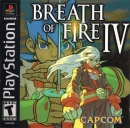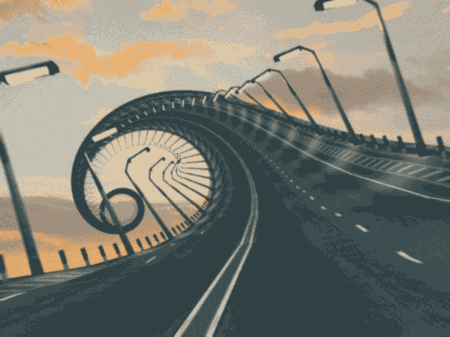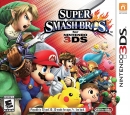S.Peelman said:
The Netherlands
And we don't all live in windmills and wear wooden shoes, or are high on drugs  . .
The 'Netherlands' is also not the same as 'Holland'. Holland is just a province (which today is separated in a northern and southern part), but historically the wealthiest and most populous. The Netherlands is a very literal name, because we are located at the lowest part of the Rhine/Meuse/Scheldt delta and the base form of the country was shaped by floods of those rivers and the North Sea.
But anyway.
As a free country, everyone is basically allowed to do almost anything they want, and everyone is welcome here, no matter your background or life-choice. Foreigners are allowed to celebrate their original culture's holidays in the same capacity as native Dutch celebrate theirs. Still, we have strong traditions, that most 'newcomers' happily participate in.
Once upon a time, a couple hundred years ago, after we won our independence in 1581 against all odds against the giant Spanish Empire (who got our country through a complicated inheritance from German and Austrian royal families, but Dutch nobles weren't happy with the new lord), the economy of our small country became bigger than that of the rest of the world combined. For a time we accumulated a vast trade empire settling in every corner of the world and we are still one of the tiny few countries who have territories outside of the core country. Trade has been in our veins since the Middle Ages, and we owe all our prosperity to it. Today we have one the highest development ratings of any country in the world.
Many of today's economical systems are based on Dutch foundations. Political systems of today were also first modernized during the Dutch Republic and it's 'Golden Age' (roughly the 17th century). Which brings a curious case, we are one of the only countries to have gone from being a republic to becoming a monarchy whereas usually it's the other way around.
After centuries of living with it, we became masters of the water. Controlling nature and building our land to our need. We waged war by flooding our lands, tiring out all invading armies. When the water froze, we would have soldiers on ice skates. Until Napoleon took advantage of a weak period and was smart enough to conquer us, for a couple years. The years where we were a puppet state of Napoleon's French Empire, are the only years that interrupted our independence (Nazi Germany only occupied us). Afterwards we were one of the founding countries of both NATO and the European Union afterwards. We have been friends with some countries for a very, very long time, and we backed United States's struggle for independence much to the annoyance of the United Kingdom, but in the end all was good. While traditionally always advocating as many good relations with other nations as possible, in the spirit of trade usually, there is recently been a feeling we should be thinking a little more about ourselves for a while instead.
Half of our country is below sea-level, and we constantly combat a wall of 5 meters of water that's ready to engulf us all. Through an elaborate system of pumping stations, dykes (the sand and grass variety) and canals dotting our entire country, we keep the water in check and form the land to how we see fit, from the original marsh-land (think Everglades, but without the alligators) to today's lush and rich fields. This knowledge gathered for almost a millennia, is now one of our biggest export products. Need to claim some land from the sea or protect a city from floods? Call the Dutch. The province of Flevoland is actually the dried sea-floor for example. Because of this, comparing maps of our country throughout the ages is very interesting, the farther you go back, the more unrecognizable the shape of our country becomes.
We are an extremely flat country, with not a single hill in sight, let alone a full-scale mountain. There are however two regions that are fairly hilly. This is near the city of Utrecht, where there are low sandy hills that were formed during the last Ice Age, and in the southernmost tip, near Maastricht and the Belgian/German borders. Here are foothills of the German Eifel and Belgian/Luxembourgian Ardennes regions. Here, the highest point is located, at just 323 meters. In fact, the highest point isn't even in the Netherlands at all, but rather on Saba in the Caribbean, which is part of our country. There are however sandy coastal dunes that are a major protection from the sea.
We have about 17 million inhabitants, which doesn't sound like that much, but because we are such a small country, we are actually one of the most densely populated countries in the world, only beat by the likes of Bangladesh and micro-countries like Monaco. It is interesting that even though we are so densely populated, we don't have any city that exceeds a population of 1 million. Amsterdam is the biggest city, with a population of almost 800,000. It is also our capital, but as the only country in the world (I think), our capital is ceremonial only, because our government is located elsewhere in The Hague.
This is grown traditionally, because of the complicated form of government in the early days of our country. The houses of parliament in The Hague are some of the oldest in the world still in use today, as well as our flag being one of the oldest and our national anthem being the oldest in the world. It tells the story of the feelings towards the Spanish King by the 'farther of our country', William of Orange. The Hague is the third city in size, with 500,000 inhabitants, after Rotterdam (where I live) with over 600,000. Rotterdam is best known for it's large port, which was the biggest in the world for over 40 years, until being overtaken by Shanghai and later Singapore at the start of the 21st century. All three, together with Utrecht and a couple cities are located in a continues string of built up are called the 'Randstad' (literally, 'Rim City', because it more of less encircles a rural area in the middle) that totals about 7 million inhabitants, or almost half our country.
This has become way longer than I thought, but you could say I'm a bit of a patriot by Dutch standards  . .
Lastly though, because this is a gaming forum, I can say that usually, we follow the German market in terms of gaming more or less. PC gaming is popular here and franchises that are popular in Germany are usually popular in the Netherlands as well. Console-wise, PlayStation rules since it exists and is biggest in everything, as SEGA did before that. Nintendo is fairly popular (we didn't have Club Nintendo since 2004 for no reason), but probably mostly the handhelds. XBox is clearly the smallest, but still gets adequate shelf space and exposure. XBox usually wins in dedicated game-stores against Nintendo, but the latter wins in toy stores or department stores is my experience. |




























 .
. .
.








 .
.






















